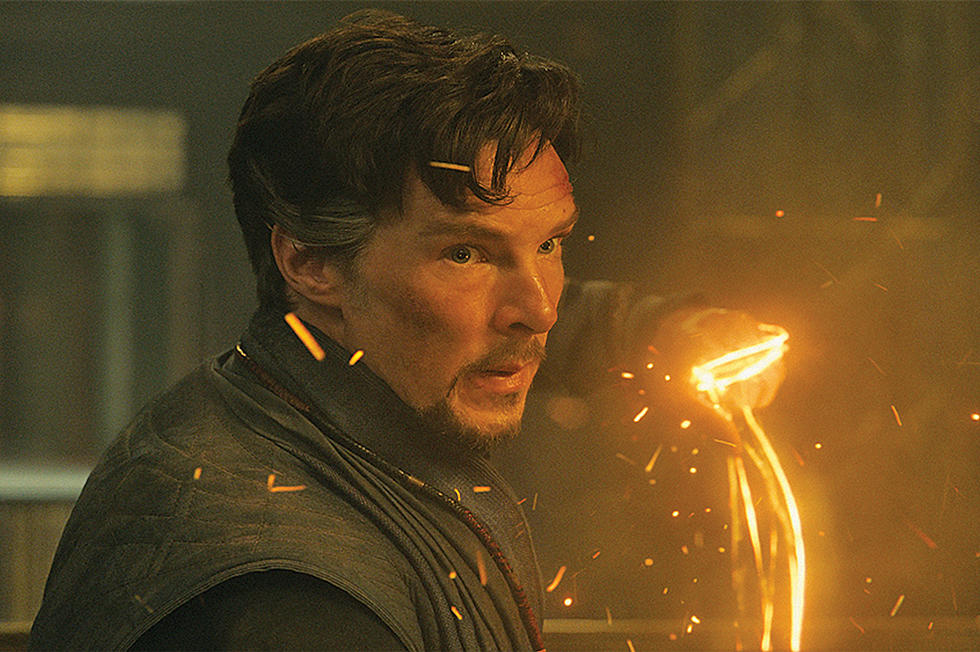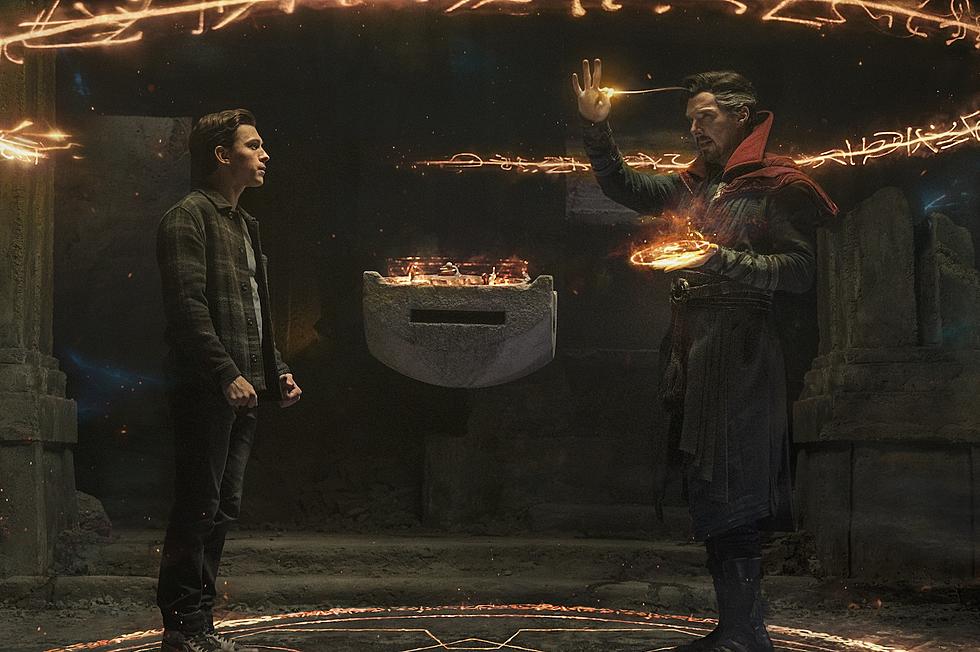
‘The Imitation Game’ Director on Why He Didn’t Cast a Gay Actor: “Sexuality Is Completely Irrelevant”
In case you weren't aware, perhaps because of all the war and code-cracking action at play in the trailers, the lead character in the TIFF 2014 standout and early awards hopeful 'The Imitation Game' is gay. I know, it's nothing like we've seen in the Liberace biopic, right?
Benedict Cumberbatch portrays Alan Turing, the man credited with cracking the infamous "Enigma" Nazi code during WWII and, arguably, ending the war two years early as a result. He would later be outed as gay, during this harsh climate for LGBT people, and eventually commit suicide. While it's a progressive step in bringing more stories of prominent LGBT historic figures to the big screen, it does attract some long-gestating discussions over the lack of gay actors portraying gay roles in Hollywood films.
During a press conference for 'The Imitation Game' during TIFF on Tuesday, a BBC reporter brought this discussion to director Morten Tyldum. Below is the transcript of the back and forth, which extracted a strong reaction from Tyldum:
BBC: Why not cast a gay actor in the lead role?
Tyldum: I would never consider the sexuality of an actor [to be] important. ...
BBC: But neither is race or gender, but you wouldn’t cast Brad Pitt to play Nelson Mandella in a film, so in the effort of authenticity and advancing the aim of more gay actors being in lead roles, this is the opportunity to do so.
Tyldum: So, you mean, a gay actor cannot play a straight man? I actually find that question really ludicrous. I think a person’s sexuality is completely irrelevant in how they can perform and how they can act, how they can be. To me, that’s not — Benedict is not Alan Turing. He’s playing Alan Turing. Alan Turing was a gay man, and him being a gay icon was very important to us. His relationship to Christopher Morcom, who defined his life, was very important to us. And his crucifixion at the end was very important to us. I don’t see it helped the movie at all to have a gay actor play a gay man. It would be the same way to say that a gay actor cannot play a straight man. I think it’s … yeah. That’s all I want to say about that.
While more LGBT characters are spotlighted onscreen than ever before, through shows like 'Modern Family,' 'Orange Is the New Black' and 'Pretty Little Liars,' and movies like 'The Normal Heart,' 'Dallas Buyers Club' and 'Behind the Candelabra,' there's still a lack of prominent gay actors playing prominent gay roles in film. There certainly are exceptions, but Tyldum's reasoning for why he didn't take this opportunity is worthy.
As we previously discussed in regards to LGBT representation in Marvel and DC's series and movies, saying sexuality is irrelevant in that case is inherently homophobic and used as a way to justify the community's exclusion while practically pretending non-heterosexual orientations don't exist. Anti-racism activist Jane Elliott made a similar argument in terms of racist sentiments. But when it comes to casting gay or straight actors as gay characters, should sexuality be a factor?
Short answer: no, it shouldn't.
While the essence of Tyldum's argument may have been clouded in the heat of the moment and through his anger at having being asked such a "ludicrous" question, as he said, it's solid. Casting, auditions, tryouts, what have you should be based only on skill and talent, and to suggest Cumberbatch scored the role over gay actors vying for the part because of his sexuality is an insult to him as an actor. Tyldum's converse statement -- by saying this, the reporter is also implying "a gay actor cannot play a straight man" -- brings to mind that famous Newsweek article by Ramin Setoodeh, in which the writer argued that gay actors cannot convincingly play straight characters. Guess he never saw 'How I Met Your Mother.'
Putting it more succinctly, Ira Sachs, a gay man and director of one of this year's prominent LGBT films, 'Love Is Strange,' which stars heterosexual actors John Lithgow and Alfred Molina as an elderly couple, told ScreenCrush on the matter: "Sexuality in and of itself is not a factor for me in deciding who to cast. Laurence Olivier said, ‘They call it acting for a reason,’ and I believe that we are not so different humanly that our sexuality divides us."
Watch the full press conference from TIFF 2014 below.
http://youtu.be/4EC8iRn7Xfg[googleAd adunit="cutout-placeholder" placeholder="cutout-placeholder"]
More From ScreenCrush









